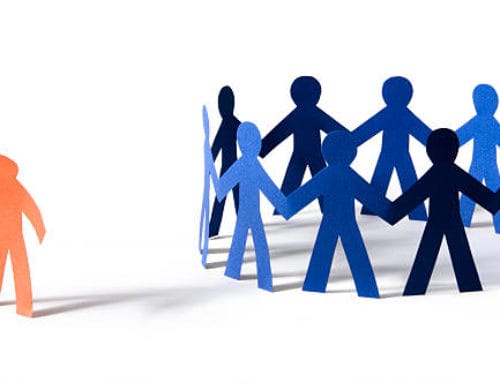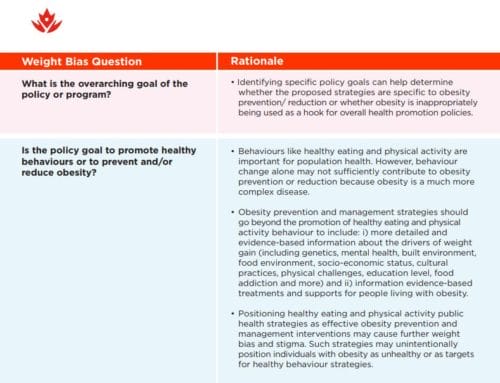One of the most crucial components of “healthy weight” social messages is that body weight is easily modifiable[1]. This is a message people hear, read, and talk about on a regular basis. It is common to hear phrases that communicate the message that body weight = calories in – calories out. “Choose less, weight less” and “you are what you eat” are two examples. This simple equation is reinforced by the diet industry, the fitness industry, public health campaigns, and in everyday conversations. But given what researchers know about how difficult it can be to lose weight and to maintain weight loss long term[2], is our body weight really that controllable?
In the early 2000’s obesity researchers set out to better understand the causes of body weight[3]. By the end of their research, they had identified over 100 different, but interconnected, factors that influence our body weight. Generally, these factors belong to 7 categories that include a person’s (1) biology, (2) their level of physical activity, (3) their activity environment, (4) social influences such as our culture and the media, (5) a person’s personality and other psychological factors, (6) their food environment, and (7) their patterns of food consumption. The researchers summarized their work in an image[4] that accurately depicts body weight as being influenced by a complex web of interconnected factors. So, in examining the question of whether or not our body weight is easily controllable, the answer is: absolutely not.
Despite this research being released in 2007, beliefs that weight is easily controllable persist in our society. These beliefs can have serious consequences for individuals of all body sizes. First, individuals with obesity are often blamed by others for having caused their body size and for lacking willpower to change[5]. Second, individuals with obesity may also blame themselves for their weight[6], as they are not immune to “healthy weight” social messages. Finally, the belief that body weight is controllable and that people are responsible for maintaining their weight can contribute to body dissatisfaction and self-esteem difficulties in people of all sizes6,[7], not just individuals with obesity.
[1] Rodgers, R. F. (2016). The role of the “healthy weight” discourse in body image and eating concerns: An extension of sociocultural theory. Eating Behaviors, 22(August 2016), 194-198. https://doi.org/10.1016/j.eatbeh.2016.06.004
[2] Nordmo, M., Danielsen, Y. S., Nordmo, M.(2020). The challenge of keeping it off: A descriptive systematic review of high-quality, follow-up studies of obesity treatments. Obesity Reviews, 21, e12949. doi:10.1111/obr.12949
[3]Foresight. (2007). Tackling obesities: Future choices – project report 2nd edition. https://www.gov.uk/government/uploads/system/uploads/attachment_data/file/287937/07-1184x-tackling-obesities-future-choices-report.pdf
[4]Foresight Obesity System Map. (n.d.). Retrieved from: https://assets.publishing.service.gov.uk/government/uploads/system/uploads/attachment_data/file/296290/obesity-map-full-hi-res.pdf
[5] Puhl, R. M., Latner, J. D., O’Brien, K. S., Luedicke, J., Danielsdottir, S., & Forhan, M. (2015). A multi-national examination of weight bias: Predictors of anti-fat attitudes across four countries. International Journal of Obesity, 39, 1166-1173. doi:10.1038/ijo.2015.32
[6] Pearl, R. L., & Puhl, R. M. (2018). Weight bias internalization and health: A systematic review
[7] Pearl, R. L., & Puhl, R. M. (2014). Measuring internalized weight attitudes across body weight categories: Validation of the modified weight bias internalization scale. Body Image, 11, 89-92. doi:10.1016/j.bodyim.2013.09.005




